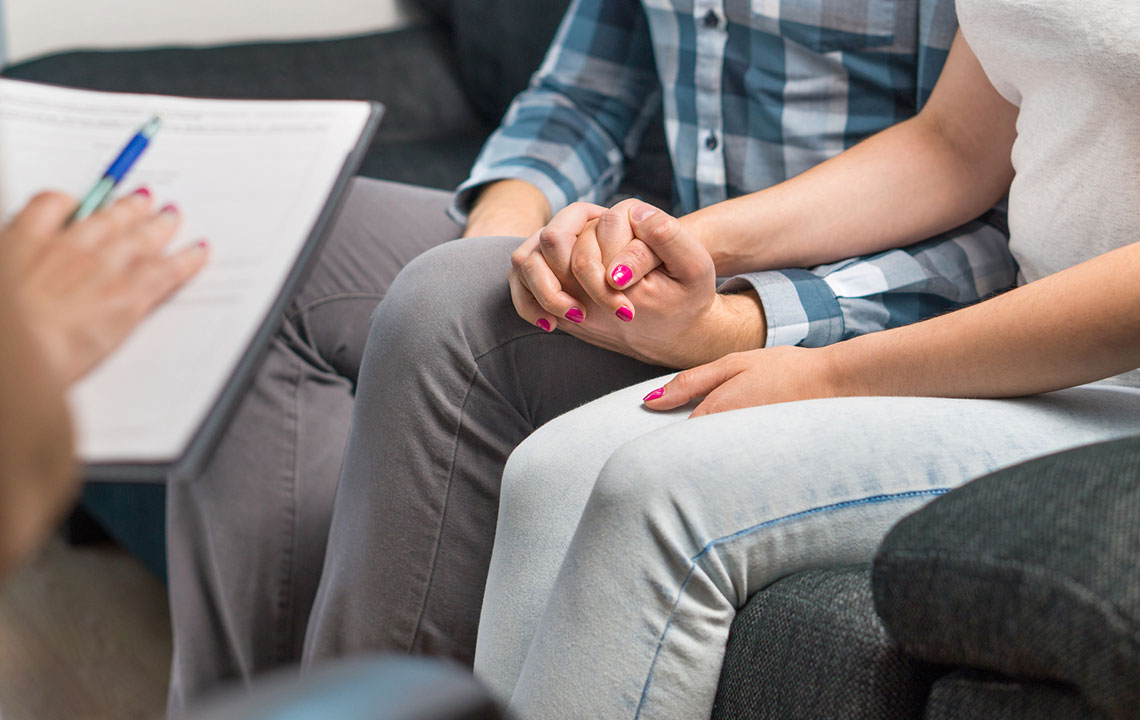Common Treatments and Therapies for Depression
Major depressive disorder or clinical depression has a negative effect on how a person feels, thinks, and reacts. It causes a perennial feeling of sadness accompanied by a loss of interest in once enjoyable activities. Moreover, it causes a number of emotional and physical problems that can decrease the affected person’s ability to function normally.
As opposed to what many assume, depression is more than just bouts of blues. According to the World Health Organization, nearly 300 million people across the world suffer from depression.

How does the treatment for depression begin?
The first step of treatment is to go through a physical examination. In some cases, medical conditions such as viral infections and certain medications cause symptoms similar to depression. A physical examination can rule out certain suspicions. Following that, a psychological evaluation is conducted either by the physician, psychiatrist, or psychologist.
The evaluation will include a complete check of the symptoms and family history, especially for depressive illnesses. Finally, a doctor will conduct a mental status examination to determine whether thought and speech patterns or memory of the person have been affected. Once the diagnostic evaluation is complete, treatments and therapies will begin based on the results of the evaluation.
Treatments for depression
The treatments for depression usually include psychotherapies and antidepressant medications. The type of treatment depends on the form of depression. Those with milder forms of depression respond well to just psychotherapies. People who have moderate to severe forms of depression usually benefit more from antidepressant medications. In most cases, a combination of both has been observed to be more effective.
Antidepressant medication provides quick relief from symptoms. Psychotherapy, on the other hand, helps a person learn effective ways to manage and deal with the effects of depression. Based on the diagnosis and severity of the symptoms, a doctor may prescribe one or several forms of psychotherapy or medication or both.
Medications for depression
There are a number of antidepressant medications used for the treatment of depressive disorders. These include selective serotonin reuptake inhibitors, serotonin-norepinephrine reuptake inhibitors, atypical antidepressants, tricyclic antidepressants, monoamine oxidase inhibitors, etc. A doctor may prescribe a variety of antidepressants before concluding what is most effective. Similarly, adjustments are also made for dosages.
Since a lot of adjustments for medications are made before figuring out what works best, the cost may take a toll on the affected person’s finances. However, coupons such as the Trintellix depression treatment coupons may make life a bit easier. Medication coupons similar to these may be available in local pharmacies or online.
Due to the high price of depression medications, many patients tend to stop taking medications as soon as they start to feel better. Although improvements in the symptoms are observed in the first few weeks, it is recommended to continue taking antidepressants for at least a month or as long as the doctor prescribes it for best results.
Psychotherapies
Therapies can be long-term or short-term (between 10 to 20 weeks). These mostly include talking and behavioral therapies. During talking therapies, patients suffering from depression have conversations with their therapists to gain insights into their problems and issues. These sessions also help get a resolution for their problems. Behavioral therapy helps the affected people learn techniques to gain satisfaction and rewards through their actions. Additionally, patients also unlearn negative behavioral patterns that contribute to or are the result of depression.
There are two common forms of short-term psychotherapies that have been found to be helpful for depression: interpersonal or behavioral and cognitive therapies. Interpersonal therapies help one untangle disturbed personal relationships, which cause or aggravate depression. Cognitive or behavioral therapies help change negative patterns of thinking and behavior.
Another common form of therapy is psychodynamic therapy. This form of therapy helps a person with depression focus on their conflicted feelings; it teaches one how to resolve them. This method is usually recommended after the symptoms of depression have improved.
Lifestyle changes
Along with prescription medications and therapies, changes in lifestyle are also required for effective treatment of depression. Regularly exercising or performing any physical activity does not only release positive brain chemical but also helps in triggering effects similar to that of antidepressants. Additionally, eating well and maintaining a healthy sleeping cycle will help alleviate the symptoms of depression. A strong social support system involving family and friends can help reduce the feeling of isolation, which is one of the major triggers of depression. Joining a support group, volunteering, or taking a class can also help.